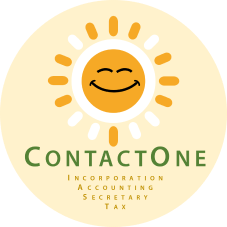A dynamic business landscape like Singapore, deciding to close your company is a significant step that requires careful consideration and understanding of the legal framework. To strike off a company in Singapore, it takes a process facilitated by the Accounting and Corporate Regulatory Authority (ACRA) and involves permanently removing a company’s name from the register. This decision, often driven by various reasons such as cessation of trading, completion of business goals, or a strategic shift in direction, requires compliance with specific criteria and legal requirements.
How to Strike-Off a Company
For a company to be considered for striking off, it must fulfil several conditions that assure ACRA of its eligibility. These grounds are designed to ensure that the company has settled its obligations and is not leaving behind any unresolved liabilities.
-
Ceased Operations
To strike off a company by ACRA, it must have ceased its business activities. This cessation indicates that the company is no longer engaged in trading or commercial undertakings and is essential for the strike-off application.
-
No Outstanding Liabilities
According to the companies striking off regulations, the company should have no outstanding liabilities, including debts, charges, or fines, towards any entity or the government. This includes clearing all outstanding tax liabilities with the Inland Revenue Authority of Singapore (IRAS).
-
No Existing Assets
All assets must be disposed of before applying for a strike-off. The company should not possess any tangible or intangible assets, ensuring it leaves no unresolved matters that could affect stakeholders.
-
Unanimous Shareholder Approval
The decision to strike off must be approved by all shareholders. This consensus ensures that all parties involved with the company agree with its closure.
-
No Ongoing Legal Proceedings
Striking off a company must not be involved in any legal proceedings inside or outside Singapore. Legal entanglements could complicate the strike-off process and hence need to be resolved or concluded beforehand.
The Process
The procedure for striking off a company in Singapore is designed to be straightforward, provided that all the requirements are met. Here’s a step-by-step guide:
-
Ensure Eligibility
Before initiating the process, confirm that the company meets all the grounds for striking off listed above. This initial step is crucial for a smooth process.
-
Application to ACRA
The application for striking off a company is submitted to ACRA via the BizFile+ portal. This online submission must include declarations that the company fulfils all the criteria for striking off.
-
ACRA’s Review
ACRA will review the application to ensure compliance with the striking-off criteria. This review process involves checking with other governmental bodies, such as IRAS, to confirm no outstanding taxes or liabilities.
-
Public Notification
Upon satisfaction, ACRA will send a First Gazette Notification announcing the intention to strike off the company as part of the companies striking off regulations. This notification allows any interested parties to raise objections, if any.
-
Final Gazette Notification
If no objections are received within the stipulated period, ACRA will publish a Final Gazette Notification. This publication marks the official removal of the company’s name from the register.
Implications and Considerations
The process to strike off a company in Singapore has significant implications that business owners should carefully consider before proceeding. One of the primary implications is that the company ceases to exist legally, and all assets become bona vacant or ownerless property. Additionally, struck-off companies cannot continue legal action or fulfil contractual obligations. Therefore, ensuring compliance with all legal requirements is essential to avoid future issues.
The implications of successfully striking off a company go beyond just the cessation of its business activities and deregistration. It signifies that the entity has responsibly fulfilled its legal and financial duties towards stakeholders, regulatory bodies, and the government.
Compliance with strike off company ACRA’s stringent criteria ensures that the process is conducted ethically and in alignment with Singapore’s rigorous corporate governance standards. This careful approach helps preserve the integrity of the business environment in Singapore, maintaining its reputation as a transparent, reliable, and attractive place for conducting business.
For owners, it marks the end of a business venture, potentially paving the way for new opportunities, armed with the experience gained from managing and concluding their enterprise following the law.
Frequently Asked Questions (FAQs)
In the vibrant economic landscape of Singapore, a business’s lifecycle can take many turns, leading some to thrive while others may conclude their venture. The decision to close a business is never taken lightly, for it marks the end of a chapter filled with learning, growth, and perhaps challenges overcome. Understanding the companies striking off regulations and legal frameworks for closing a business is essential.
Although a legal formality, striking off a company in Singapore is a significant step that requires meticulous preparation, adherence to specific statutory requirements, and a clear understanding of the implications that follow
-
Can a Struck-Off Company be Revived?
Yes, a struck-off company can be revived within six years from the date of striking off by applying for restoration to ACRA. However, this process is more complex and may involve additional costs.
-
What Happens if I Fail to Comply with Striking Off a Company Criteria?
Failing to comply with the striking-off criteria can result in penalties, such as fines or imprisonment. It may also delay the process or hinder future business activities.
-
What if I have Outstanding Tax Liabilities?
If there are outstanding tax liabilities, you must settle them with IRAS before applying for striking off. Failure to do so may result in the rejection of the application.
-
Can I Apply for Striking Off if my Company has Assets?
No, all assets must be disposed of before applying for striking off. This ensures that all unresolved matters and liabilities are included.
-
How Long Does the Process Take?
The process of striking off a company typically takes 5-6 months from applying for ACRA’s final gazette notification. However, this timeline may vary depending on the specifics of each case.
Navigate the Closure Journey with Confidence and Forward Vision
Striking off a company in Singapore is a significant decision that requires thorough consideration and preparation. Meeting the strict criteria set forth by ACRA and understanding the legal implications are fundamental steps in the process. For business owners considering this action, it’s paramount to seek professional guidance to ensure compliance and to make the process as smooth as possible.
Should you decide to strike off a company in Singapore, it’s essential to approach it with a sense of serenity and the reassurance that, with the proper planning and guidance, the process can be navigated smoothly and professionally. Remember, this step, while significant, is a part of the natural lifecycle of a business and opens the door to new beginnings.
It’s essential to view this not just as an end but as a transition that, when executed with diligence and adherence to legal protocols, sets a foundation for future endeavours. Our team supports you through each step, ensuring you are fully informed and can proceed confidently and with peace of mind.
Ready to Begin Your Company’s Transition?
For personalised guidance through the process of striking off a company in Singapore, ContactOne is here to support you. Our team of experts ensures compliance with all legal requirements, providing a smooth and hassle-free experience.
Contact us at +65 8666 3633 or via email at [email protected] to schedule your consultation. We’re ready to assist whether you need help understanding the initial steps, navigating the application process, or seeking advice on post-strike-off considerations. Start your company’s transition with confidence and the professional backing you need.







